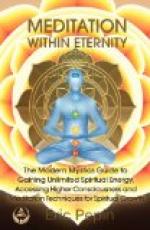The religion of Persia, wrongly alluded to as “fire-worship,” marks Zoroaster as among the Illuminati, but as the present volume is concerned, in the religious aspect of it, only with those cases of Illumination which we are classifying among the present great religious systems, we cite the case of Mohammed, the Arab, as one clearly establishing the characteristic points of Illumination.
When Mohammed was born, in the early part of the fifth century, the condition of his countrymen was primitive in the extreme.
The most powerful force among them was tribal or clan loyalty, and a corresponding hatred of, and readiness to make war with, opposing clans.
Although at the time of Mohammed’s birth, Christianity had made great headway in different parts of the old world, it had made very little impress upon the Arabs. They worshipped their tribal gods, and there are traces of a belief in a supreme God (Allah ta-ala), but they were not as a race inclined to a deeply religious sentiment.
One and all, whether given to superstitions or denying a belief in Allah, they dreaded the dark after-life and although the different tribes made their yearly pilgrimages to Mecca, and faithfully kissed the stone that had fallen from heaven in the days of Adam, the inspiration of their ancient prophets had long since died, and a new prophet was expected and looked for.
The yearly pilgrimage to Mecca, which was at once the center of trade and the goal of the religious enthusiast, was observed by all the tribes of Arabia, but it is a question whether the pilgrimage was not more often made in a holiday spirit than in that of the devotee to the Kaabeh, the most sacred temple in all Arabia.
Indeed, it is agreed by all commentators, that the ancient Arab, “In the Time of Ignorance,” before the coming of Mohammed, knew little and cared less about those spiritual qualities that look beyond the physical; not questioning, as did Mohammed, what lies beyond this vale of strife, whose only exit is the dark and inscrutable face of death.
Besides the tribal gods, individual households had their special Penates, to whom was due the first and the last salam of the returning or out-going host. But in spite of all this superstitious apparatus, the Arabs were never a religious people. In the old days, as now, they were reckless, skeptical, materialistic. They had their gods and their divining arrows, but they were ready to demolish both if the responses proved contrary to their wishes. A great majority believed in no future life, nor in a reckoning day of good and evil.
Such, then, was the condition of thought among the various tribes when Mohammed was born.
It was not, however, until he was past forty years of age, that the revelations came to him, and although it was some time later that these were set down, together with his admonitions and counsel to his followers, it is believed that they are for the most part well authenticated, as the Koran was compiled during Mohammed’s lifetime, and thus, in the original, doubtless represents an authentic account of Mohammed’s experiences.




